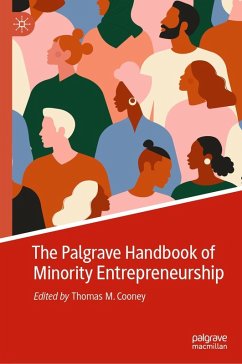With a cast of international contributors, this scholarly handbook discusses the surrounding literature of minority entrepreneurship and takes an all-encompassing approach to its interpretation. It also addresses the sorely under-researched area of entrepreneurial behaviour among minorities and disadvantaged groups. This is particularly important for policymakers tasked with designing and delivering initiatives that are appropriate for the needs of these communities.
Ultimately this handbook contributes to existing knowledge by:
.providing a current understanding of the literature for each of the communities;
.investigating the uniqueness of the entrepreneurial behaviour within the communities;
.offering new frameworks/models from which future researchers can build new knowledge.
The handbook provides a comprehensive account of an important and fast emerging field of entrepreneurship, and is an invaluable resource for students, researchers and policymakers.
Thomas M. Cooney is Professor of Entrepreneurship at the Technological University Dublin (Ireland) and is the founder of the Institute for Minority Entrepreneurship. He has published widely on minority entrepreneurship, and is a former Editor of the journal Small Enterprise Research. He is a policy adviser to governments, the European Commission, the OECD and other international organisations.
Dieser Download kann aus rechtlichen Gründen nur mit Rechnungsadresse in A, B, BG, CY, CZ, D, DK, EW, E, FIN, F, GR, HR, H, IRL, I, LT, L, LR, M, NL, PL, P, R, S, SLO, SK ausgeliefert werden.









